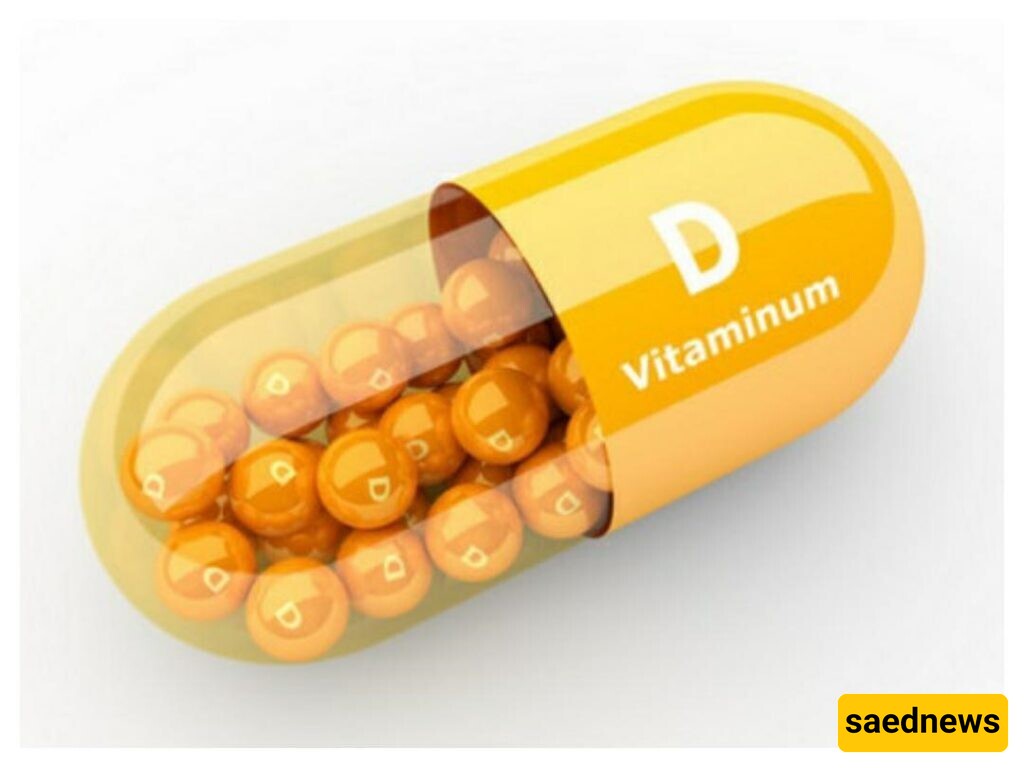Saed News: The cold season is here, the days are getting shorter and the temperatures are dropping. Unfortunately, this is keeping many of us increasingly indoors, limiting our exposure to natural sunlight, which happens to be our main source of vitamin D.

The cold season is here, the days are getting shorter , and the temperatures are dropping. This has many of us increasingly staying indoors, limiting our exposure to natural sunlight, which happens to be a major source of vitamin D. This change makes people more vulnerable to vitamin D deficiency at a time when they need protection the most (cold and flu season). In recent years, more research has been done on the link between vitamin D deficiency and immune health, with studies emphasizing the importance of vitamin D and its role in supporting the body's defense mechanisms. So, let's take a closer look at this connection to understand how vitamin D can help you feel your best during the cold season.
Forty percent of Americans are vitamin D deficient. The condition is more common in populations living in northern latitudes or areas with limited sunlight during the winter. Other risk factors for vitamin D deficiency include aging, darker skin, and autoimmune disorders. A simple blood test can determine your vitamin D levels.
Vitamin D plays an important role in both innate and adaptive immune responses. Vitamin D activates the body’s “first responder” cells, known as macrophages or dendritic cells, which recognize and neutralize harmful microorganisms before they can spread. Infections can cause inflammation in the body, which is the immune system’s natural response to fight off threats. Vitamin D helps manage this inflammation by influencing the production of cytokines (chemical messengers that direct immune cells). By keeping cytokine levels balanced, vitamin D helps prevent an overactive immune response and reduces the risk of complications. Vitamin D also supports an antimicrobial peptide that helps fight bacteria, viruses, and fungi. Additionally, it boosts T cells and B cells, which recognize and remember pathogens that have been previously encountered,, further strengthening immune defenses
Research suggests that maintaining adequate vitamin D levels can significantly reduce the risk of respiratory infections. A meta-analysis published in the British Medical Journal found that vitamin D supplements reduce the risk of acute respiratory infections, especially in people who are vitamin D deficient. Vitamin D supplements can boost the immune system and make it more resistant to cold and flu viruses. The recommended daily intake of vitamin D depends on your age, health status, and individual needs. Consult your doctor before starting any supplement to determine the right dosage for you.
Adults : 600-800 international units per day. Higher doses may be needed for those who are deficient.
Children (1 to 18 years): 600 IU per day. A blood test can confirm whether supplementation is needed and help determine the ideal dosage.
When choosing a vitamin D supplement, do your best to choose high-quality options. Studies show that vitamin D3 is more effective at increasing blood levels of vitamin D than other forms.
For better absorption, take vitamin D3 with vitamin K2. If you are severely deficient or have difficulty absorbing it due to digestive issues, health centers often offer high-dose vitamin D3 injections as an alternativ
Although supplements are a surefire way to boost your vitamin D levels, you can also get this essential nutrient from certain foods and, of course, from sun exposure:
Fatty fish : Salmon, tuna, and sardines are excellent sources of vitamin D.
Fortified foods : High-quality dairy products and some plant-based milk alternatives often contain added vitamin D.
Egg yolk : Another natural source of vitamin D.
However, meeting daily requirements through diet alone is challenging. Sunlight is a powerful natural source. Spending 20 to 30 minutes outdoors daily is key to maintaining vitamin D levels.



